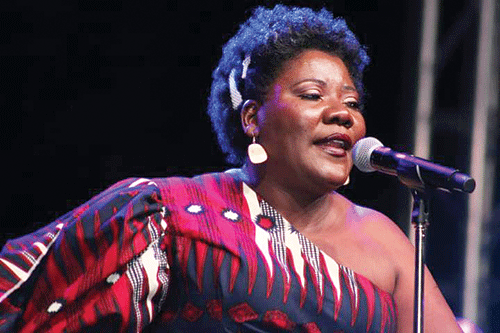Local jazz acts Erna Chimu, Suzy Eises, Sharon van Rooi and Slow will share the spotlight when Namibia joins the rest of the world in celebrating International Jazz Day on 30 April.
Celebrated annually, following its proclamation by the Unesco General Conference of Member States in November 2011, the day is intended to raise awareness of the benefits of jazz as an educational tool and a force for promoting dialogue among cultures, freedom of expression and mutual understanding.
An invitation to the event from Unesco said, as a musical art form, jazz promotes artistic innovation and improvisation, and it is a tool for cultural expression.
In an age of rapid technological advancement, new opportunities are emerging for expanding the genre. These include the empowerment of young people to explore and experiment with their traditional music forms, jazz, digitization and new technologies while providing an opportunity for a diversified source of income for cultural workers.
Namibia’s history with jazz dates back to the 20th century, and the art form has served as a platform to bring communities together. The popularity of jazz has also been growing, including through the organisation of events, such as the annual Windhoek Jazz Festival, Windhoek Jazz Night, which was an initiative by the Fu Jazz All Stars band in collaboration with Ondjila Y’Ondjaba Concert Agency, as well as the Hilton Hotel’s Thursday Jazz Etcetera.
Additionally, for almost a decade, Namibia has joined the world in celebrating International Jazz Day, aimed at promoting the genre and encouraging regional and international jazz exchanges, collaboration and dialogue.
The presence of local jazz musicians, such as Eises, Chimu, Dennis Eiseb, Van Rooi, old timers Ugly Creatures and Sigera Band, as well as Lize Ehlers, Fu Jazz All Stars Band and Major 7th, has also contributed to the growth of the genre.
For the celebration of International Jazz Day 2024, UNESCO; the Directorate of Arts at the Ministry of Education, Arts and Culture; the Franco Namibian Cultural Centre (FNCC); the College of the Arts (COTA); the National Theatre of Namibia (NTN), the Museums Association of Namibia (MAN) and the US Embassy in Namibia will also host the colloquium on 29 April from 14h30 to 17h30 at the FNCC.
The colloquium will bring together music students and practitioners, as well as leaders in digital and technology industries in Namibia, with ICT policy planners and government officials to engage and explore different aspects of jazz and digital technology.
The half-day event will address issues such as the perception and evolution of traditional jazz music in Namibia; educating young jazz musicians – on access and quality; supporting expansion of a creative industry around jazz music – challenges and opportunities, as well as digitalisation and technological advancements – advantages and pitfalls.
On 30 April, the audience will also be treated to an interlude of Namibia’s Nama Music by the Aboxan Musik ǀŌb ǂÂns tsî ǁKhasigu, which was inscribed on Unesco’s List of Intangible Cultural Heritage in Need of Urgent Safeguarding during its fifteenth session of the Intergovernmental Committee for the Safeguarding of the Intangible Cultural Heritage in December 2020.
Aboxan Musik ǀŌb ǂÂns tsî ǁKhasigu relates to the ancestral musical sound knowledge and skills related to the specific traditional music of the Nama people. It involves the use of traditional musical instruments: the khab (musical bow) and !guitsib (traditional guitar), as well as the vlies (harmonica), usually played by women, accompanied by singing, humming and ululating.


